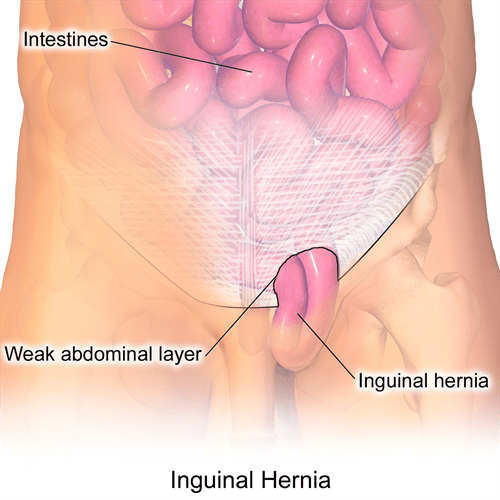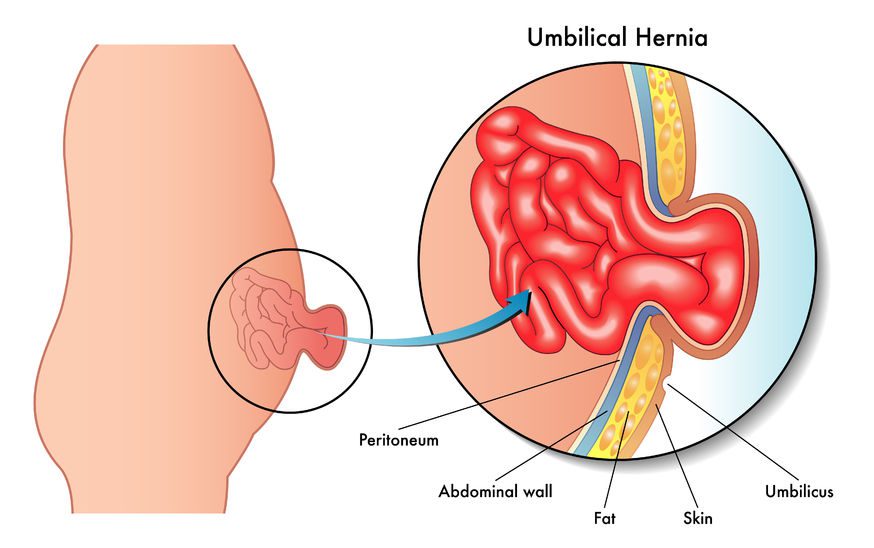Introduction
A hernia is a health issue in which an organ or tissue protrudes through a weak area in the muscle or connective tissue, referred to as fascia. If you are experiencing a visible bulge causing discomfort and searching online for the best hernia specialist near me, then you are at the right place. Most hernias occur in the abdominal region between the chest and hips, but they can also be found in the groin and upper thigh regions. They may also manifest in the groin regions and upper thighs. It is a medical condition that cannot be ignored. It starts small, eventually growing in size, leading to complications. If you ignore the condition, you would potentially end up being operated on for an emergency. In this blog, we will offer comprehensive details explaining everything about hernia, choosing the best hernia repair specialist near you, and understanding hernia treatment procedures for effective treatment that offers long-lasting relief.


What is a hernia, and why do you require a hernia specialist?
Before we dig deeper into hernia, it is imperative to have a basic understanding of this medical condition. In layman’s terms, a hernia is a tiny pouch created by the lining of the abdomen. A hernia happens when an organ pushes through a weakness in the surrounding muscle wall or connective tissue. When you have this medical condition, you will experience a lump that disappears when you are lying down. Seeking professional help during the initial phases helps avoid potential long-term complications. Hernia can be reducible and irreducible. In basic terms, a hernia consists of a small pouch created by the abdominal lining. For a reducible hernia, the protrusion can be pushed back into the abdominal wall. It is in an irreducible hernia where you would experience potential complications.
Do not ignore it and immediately visit a hernia specialist near you if you experience any of the following conditions:
- Heavy bulge during bending, exercising, coughing, and straining
- Burning or aching sensations
- A feeling of pressure or heaviness
- Hernias also cause vomiting, nausea, or constipation
Hernia causes
A hernia can often result from the following causes:
- Lifting heavy objects without wearing proper support
- Diarrhoea or constipation
- Pregnancy and, in particular, multiple pregnancies
- Continuous sneezing or coughing
- Obesity
- Damage from any surgery or injury
Types of hernia
Inguinal hernias
The most prevalent types of hernias account for 75% of all cases, occurring when a portion of the stomach extends into the inguinal canal, found in the groin. This particular type occurs more frequently in men than in women.
Femoral hernia:
These hernias are more common in women. They arise when the fatty tissue protrudes through the weakness in the femoral canal just beneath the inguinal ligament, near the top of the thigh region.
Hiatus hernias
These hernias are most common in older individuals. Hiatus hernias occur when part of the stomach pushes through the chest cavity via an opening in the diaphragm. For those who do not know, the diaphragm is a muscular partition that divides the chest from the abdomen.
Umbilical hernias
These hernias happen when a section of tissue protrudes through a weakness in the abdominal wall close to the navel or belly button.


Epigastric hernias
This hernia occurs in the epigastric area of the abdominal wall, located between the sternum and the navel. Mostly, they are asymptomatic. Small hernias are usually painless, whereas large hernias have a peculiar bulge and cause discomfort while lifting or coughing, or straining.
Incisional hernias
Incisional hernias, as indicated by their name, develop following abdominal surgery. They arise from the weakening of the abdominal muscles, resulting in tissue or organs bulging near the site of the surgical incision. Typically, these hernias can develop within 3-6 months post-surgery. Some may even occur within a couple of years after performing the initial surgery.
Guide to finding a hernia specialist near you
Do your due diligence before booking a consultation with a hernia specialist near you. Ensure that the specialist fulfils the following criteria so that you end up making the right decision.
-
- Experience: The more the hernia surgeries, the better the outcomes. Always approach an experienced hernia surgeon near you for effective treatment.
- Board certifications: Pay close attention to the qualifications and choose a board-certified surgeon.
- Minimal invasive options: Choose a hernia doctor who has experience in performing laparoscopic and robotic surgeries. Invasive surgeries lead to minimal pain and faster recoveries.
-
- Accessibility and location: Always prefer the best hernia doctor near your residence, since after surgery, you may be advised to visit the hospital for regular post-surgery follow-ups. A simple Google search like the best hernia specialist near me fits the bill.
- Patient reviews and testimonials: A close study of the patient reviews and testimonials offers a glimpse of what to expect when it comes to treatment and care offered at the hospital/clinic.
Preparing for consultation
Bring your medical history and insurance
- List of current medications.
- Relevant medical records and imaging
- Insurance card and photo ID
- A notebook to take notes.
Types of Hernia Treatment
Most hernias require surgical intervention, but if the hernias are small, the doctor may follow a wait-and-watch approach. If the hernia worsens over time, the doctor may recommend hernia repair, as it may lead to intestinal obstructions. There are 3 major surgical options used for hernia treatment. They are:
- Open surgery
- Laparoscopic surgery
- Robotic surgery
Let us check each of the surgery types in complete detail.
-
Open surgery
In this operation, the surgeon creates a cut close to the hernia and repositions the weakened area back into the abdominal wall. After that, the abdominal wall is reinforced either with stitches or a mesh. Usually, the surgical procedure is conducted under local or general anesthesia. This procedure includes the following steps.
- After administering the patient with a local or general anesthesia, the hernia specialist makes a large cut (about 1-2 inches) in the groin area or the abdominal wall.
- The bulging tissue is carefully pushed back into its original position within the abdominal cavity.
- To reinforce the weakened abdominal wall, the surgeon places a surgical mesh, which helps to prevent the hernia from recurring in the same area.
- The incision is then closed with stitches, surgical glue, or sutures.
2) Laparoscopic surgery
In this procedure, a small incision is made and a tube with a light is inserted into the incision. The entire procedure is performed under general anesthesia. The patient’s stomach is bloated with gas to enable better viewing and give more space for the surgeon to operate. The process is handy for small hernias as well as complex, large hernias.
3) Robotic-assisted surgery
An alternative option to open surgery. In this procedure, the hernia specialist sits at a console and maneuvers the robotic surgical instruments by viewing the 3D images on the screen. Let’s take a look at the steps involved in performing the robotic-assisted surgery.
- The repair doctor makes a small cut in the abdomen of the patient. The surgery will be performed under general anesthesia. Next, a robotic scope linked to a video camera is inserted through the incision. To enhance the visibility of the patient’s abdomen, the surgeon inflates it using carbon dioxide.
- The surgeon manipulates the robotic arms and tools while monitoring the display.
- The weakened tissue or organ is then placed in its proper place. After hernia repair, the sutures or a synthetic mesh is used to close the incisions.
- As the procedure is minimally invasive, the complications are quite less, and the patient also recovers within a short time.
Conclusion
Early diagnosis is important to prevent complications at a later stage. Consult an experienced hernia specialist in Visakhapatnam for treatment. Whether you are new to hernia diagnosis or suffering from recurring hernia, treatment is just a click away. All you need to do is do a Google search by typing hernia specialist near me. This would give you a list of available hernia doctors in Visakhapatnam. Before scheduling a consultation, review the criteria outlined earlier to select the most suitable hernia specialist for your care. Understand the potential risks and complications associated with hernia treatment, and discuss your expectations with the surgeon.



